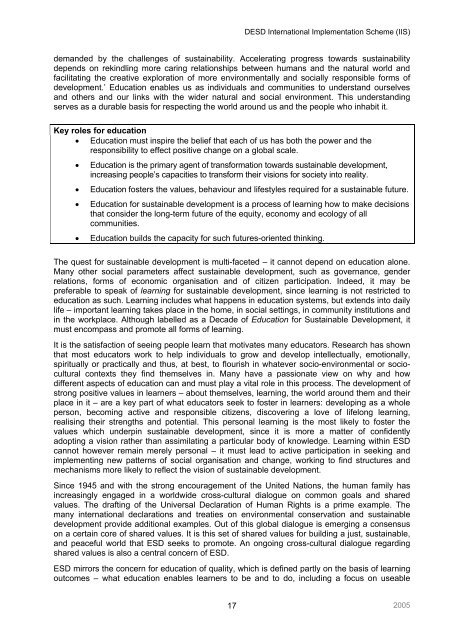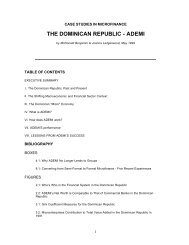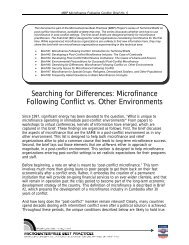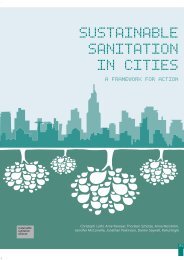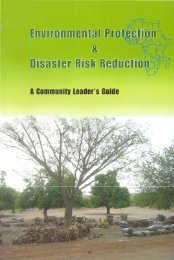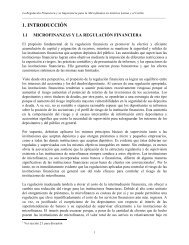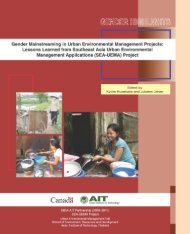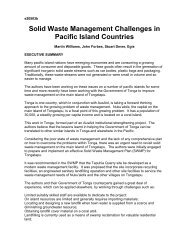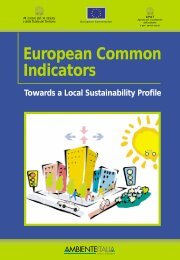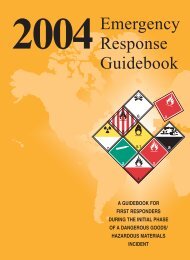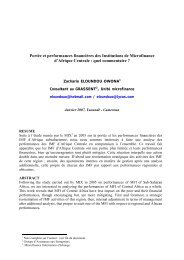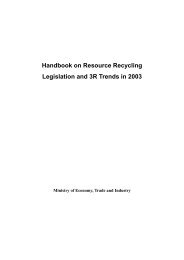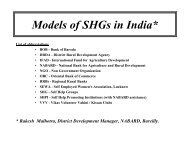The International Implementation Scheme (IIS) - Unesco
The International Implementation Scheme (IIS) - Unesco
The International Implementation Scheme (IIS) - Unesco
Create successful ePaper yourself
Turn your PDF publications into a flip-book with our unique Google optimized e-Paper software.
DESD <strong>International</strong> <strong>Implementation</strong> <strong>Scheme</strong> (<strong>IIS</strong>)<br />
demanded by the challenges of sustainability. Accelerating progress towards sustainability<br />
depends on rekindling more caring relationships between humans and the natural world and<br />
facilitating the creative exploration of more environmentally and socially responsible forms of<br />
development.’ Education enables us as individuals and communities to understand ourselves<br />
and others and our links with the wider natural and social environment. This understanding<br />
serves as a durable basis for respecting the world around us and the people who inhabit it.<br />
Key roles for education<br />
• Education must inspire the belief that each of us has both the power and the<br />
responsibility to effect positive change on a global scale.<br />
• Education is the primary agent of transformation towards sustainable development,<br />
increasing people’s capacities to transform their visions for society into reality.<br />
• Education fosters the values, behaviour and lifestyles required for a sustainable future.<br />
• Education for sustainable development is a process of learning how to make decisions<br />
that consider the long-term future of the equity, economy and ecology of all<br />
communities.<br />
• Education builds the capacity for such futures-oriented thinking.<br />
<strong>The</strong> quest for sustainable development is multi-faceted – it cannot depend on education alone.<br />
Many other social parameters affect sustainable development, such as governance, gender<br />
relations, forms of economic organisation and of citizen participation. Indeed, it may be<br />
preferable to speak of learning for sustainable development, since learning is not restricted to<br />
education as such. Learning includes what happens in education systems, but extends into daily<br />
life – important learning takes place in the home, in social settings, in community institutions and<br />
in the workplace. Although labelled as a Decade of Education for Sustainable Development, it<br />
must encompass and promote all forms of learning.<br />
It is the satisfaction of seeing people learn that motivates many educators. Research has shown<br />
that most educators work to help individuals to grow and develop intellectually, emotionally,<br />
spiritually or practically and thus, at best, to flourish in whatever socio-environmental or sociocultural<br />
contexts they find themselves in. Many have a passionate view on why and how<br />
different aspects of education can and must play a vital role in this process. <strong>The</strong> development of<br />
strong positive values in learners – about themselves, learning, the world around them and their<br />
place in it – are a key part of what educators seek to foster in learners: developing as a whole<br />
person, becoming active and responsible citizens, discovering a love of lifelong learning,<br />
realising their strengths and potential. This personal learning is the most likely to foster the<br />
values which underpin sustainable development, since it is more a matter of confidently<br />
adopting a vision rather than assimilating a particular body of knowledge. Learning within ESD<br />
cannot however remain merely personal – it must lead to active participation in seeking and<br />
implementing new patterns of social organisation and change, working to find structures and<br />
mechanisms more likely to reflect the vision of sustainable development.<br />
Since 1945 and with the strong encouragement of the United Nations, the human family has<br />
increasingly engaged in a worldwide cross-cultural dialogue on common goals and shared<br />
values. <strong>The</strong> drafting of the Universal Declaration of Human Rights is a prime example. <strong>The</strong><br />
many international declarations and treaties on environmental conservation and sustainable<br />
development provide additional examples. Out of this global dialogue is emerging a consensus<br />
on a certain core of shared values. It is this set of shared values for building a just, sustainable,<br />
and peaceful world that ESD seeks to promote. An ongoing cross-cultural dialogue regarding<br />
shared values is also a central concern of ESD.<br />
ESD mirrors the concern for education of quality, which is defined partly on the basis of learning<br />
outcomes – what education enables learners to be and to do, including a focus on useable<br />
17<br />
2005


